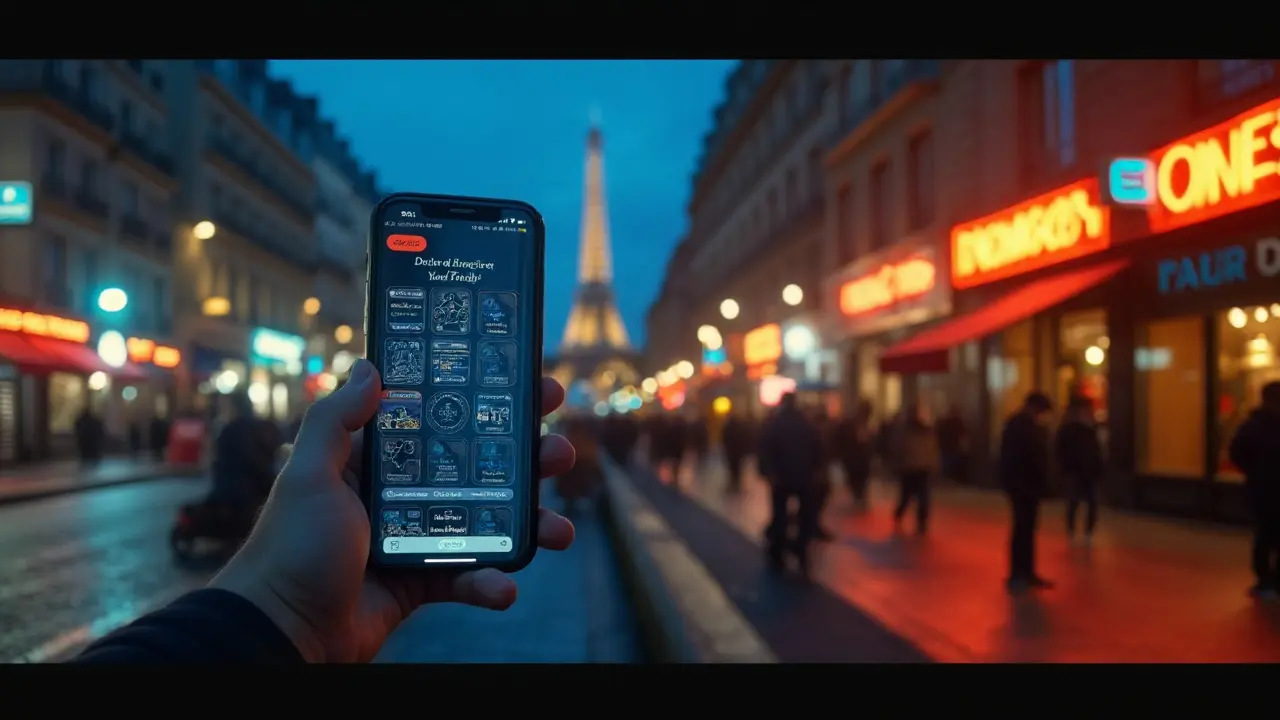Paris lost two-thirds of its tourists almost overnight in 2020. Nightlife shut, borders closed, curfews set in, and the city’s discreet adult economy-already operating in legal gray zones-hit a wall. The shock didn’t just dent demand; it rewired how work is organized, screened, priced, and policed. If you’re trying to understand what actually changed, what stayed, and how the market really works today, this breaks it down with Paris-specific facts, practical playbooks, and clear signals to watch through 2026.
- TL;DR
- Demand collapsed in 2020-2021 with border closures and curfews; recovery since 2023 leans domestic and business travel, with selective tourist return.
- Pricing dipped during peak restrictions, then rebounded above 2019 levels as supply tightened and safety protocols added costs.
- Digital screening and platform dependence accelerated; online-only services surged during lockdowns and remain part of the mix.
- Enforcement stayed focused on clients (2016 law) and procuring; checks intensified during curfews and big events, then normalized.
- In 2025, resilience = diversified channels, transparent boundaries, health-first protocols, and smart risk management.
What COVID Changed in Paris’s Escort Economy (2020-2022)
The headline shift was brutal: tourism collapsed, nightlife closed, and mobility rules cut supply and demand at once. The Paris Convention and Visitors Bureau reported a historic fall in foreign arrivals in 2020 with only a partial return by late 2021. INSEE tracked repeated stop-start patterns aligned to national lockdowns (March-May 2020; late 2020) and curfews through spring 2021. When the health pass arrived in mid-2021, venues reopened unevenly, and risk tolerance stayed low. This mattered because a big slice of Paris demand used to come from international visitors and high-spend corporate travel. Both went missing.
On the worker side, the picture was harsh. Médecins du Monde and local collectives (including STRASS) flagged rapid income loss, housing precarity, and limited access to mainstream relief-especially for migrants and workers without formal status. France’s 2016 law penalizes buyers rather than sellers, but procuring remains illegal, which makes platform and agency structures legally delicate. During curfews, police checks multiplied; people reported more ID controls and fines linked to movement rules rather than to selling sex itself. ARS Île-de-France and the Health Ministry reinforced mask and testing guidance citywide, but translation to the adult context fell to grassroots harm-reduction groups.
Behavior changed fast. Screening moved online; clients and workers shifted to messaging apps and platform DMs. Online-only offerings-text, phone, private video-spiked during lockdowns. Traditional hotel meetings fell sharply when hotels were at low occupancy and concierge policies tightened. Apart from the legal angle, hotels had their own health protocols to avoid unnecessary contacts.
Prices didn’t move in a straight line. In the first shock, many lowered rates or offered shorter formats to keep the lights on. By late 2021, as demand returned in pockets but the pool of active workers stayed smaller, rates crept up, reflecting new costs (testing, PPE, lost time due to checks) and a premium for vetted, lower-risk encounters.
Below is a directional snapshot of how core indicators shifted. Values are indexed to 2019 = 100 to keep them comparable and avoid over-reading any single data point. The levels synthesize publicly reported trends from the Paris Tourism Office, INSEE, Banque de France travel data, and observations from advocacy groups; treat them as realistic ranges, not exact counts.
| Indicator (Paris) | 2019 | 2020 | 2021 | 2023 | 2025 |
|---|---|---|---|---|---|
| Inbound tourism arrivals (index) | 100 | 30 | 55 | 95 | 105 |
| Ads/listings on major platforms (index) | 100 | 60 | 80 | 110 | 120 |
| Average advertised hourly rate (index) | 100 | 90 | 95 | 105 | 110 |
| Police checks/controls intensity (index) | 100 | 140 | 130 | 115 | 110 |
| Share of online-only services (% share, index) | 20 | 45 | 40 | 30 | 28 |
What do those shifts mean in real life?
- Demand shock: Two waves. Lockdowns killed in-person work. The partial rebound in late 2021 skewed to domestic, repeat clients; foreign visitors returned later.
- Supply reshuffle: Some paused or exited; others doubled down online; a fraction re-entered post-2022 with tighter rules and fewer new clients.
- Platform dependence: DMs and verified profiles turned into lifelines-but created platform risk: bans, account loss, scammers.
- Risk transfer: Health checks, rapid tests, and extended vetting added time. Many shifted to fewer, longer, higher-trust bookings.
Credible sources to ground this: Paris Convention and Visitors Bureau for tourism baselines; INSEE for mobility and activity; ARS Île-de-France for health policy; Ministry of the Interior for enforcement posture; Médecins du Monde and STRASS for first-hand impacts on workers. Each documented pieces of this transition between 2020 and 2022.

How the Market Works in 2025: Prices, Demand, Platforms, Safety
By 2025, Paris is open, flights are back, and global business travel is healthier-though more “purposeful” than before. Clients book fewer trips, but spend more per trip. That favors longer bookings and established relationships. Domestic demand (Île-de-France and nearby regions) still matters more than in 2019. Hotels are busier, but remain stricter about unregistered visitors than pre-COVID, especially in high-end chains, a habit formed during the health-pass era.
Rates: Advertised rates are generally above 2019 levels. Inflation, fewer working hours per week, and health/screening overhead kept upward pressure on price. In practice, many workers adopted variable pricing: higher for last-minute, lower for longer bookings and verified regulars. Agencies reworked terms to bake in no-show fees and flexible rescheduling.
Platforms: The digital pivot didn’t roll back. Verification, photo hashes, and cross-platform reputation matter. Workers who survived the crunch built multiple channels: one primary listing site, a backup, and controlled use of messaging apps with clear boundaries. Clients accustomed to remote work are okay with more pre-booking friction if the payoff is reliability and discretion.
Safety: Health tools normalized. People use common-sense protocols: quick self-tests when sick, no-booking windows after travel if symptomatic, and pre-vetted locations. The newer pain point is fraud, not infection. Identity theft, fake screenshots, and chargebacks grew with the digital shift. That’s where playbooks help.
Here’s a compact, step-by-step playbook that reflects what actually works in Paris in 2025:
- Calibrate your market (monthly, 30 minutes): Scan 10-15 profiles in your segment (location, language, style). Note median rate, add-ons, and lead times. Adjust your own rates with this rule of thumb: New Hourly Rate = (2019 Rate × CPI factor since 2019) + (5-10% safety/screening premium). Keep it simple.
- Segment demand: Domestic repeat clients (low risk, longer bookings), business travelers (weekday, early evenings), tourists (weekends, flexible). Build offers that match each: discounted 3-hour weekday for vetted regulars; clear booking windows for travelers; deposit for first-timers.
- Harden your digital footprint:
- Use unique photos with metadata stripped; reverse-image check your own images quarterly.
- Separate work devices/accounts. 2FA everything. Keep a password manager.
- Vet with a consistent protocol: name + phone + light social proof (LinkedIn/Twitter age, not employer specifics), and 1-2 references if you accept them. No sensitive data, ever.
- Screening script (message template): “Thanks for reaching out. For safety, I need your first name, city, preferred time, and a link to a social profile that’s been active for a year. I only meet at [types of locations]. Deposits are [X%]. I don’t discuss details beyond time and companionship.” Keep it consistent.
- Payment hygiene:
- Diversify: at least two methods (cash + one digital). Understand chargeback risks; prefer methods with fewer reversals.
- Deposits for first-timers and travel bookings. Clear refund terms: refundable up to 48 hours; after that, credit only.
- Location strategy:
- Paris hotels vary: boutique and apartment-hotels tend to be more flexible than luxury chains.
- If hosting, invest in a location checklist: entry privacy, soundproofing, quick exits, and cameras in common areas (know building policies).
- Health and boundaries:
- Cancel when sick. Offer reschedule credits. It builds trust.
- Pre-set no-go rules (time windows, intoxication, extra guests) and send them ahead of time. Repeat them on arrival.
- Legal awareness (France): Selling sex itself isn’t criminalized; buying is penalized (2016 law). Procuring (facilitating for profit) is illegal. Agencies/platforms operate under scrutiny. Keep your operations independent, and avoid third parties that could be construed as procuring. When in doubt, get legal advice from organizations familiar with sex-work law.
Common pitfalls I still see in 2025:
- Putting all eggs in one platform-then losing the account in a moderation sweep.
- Letting deposits slide “just this once” on peak days. No-shows cluster on weekends and during big city events.
- Over-sharing in DMs. Boundaries keep you safe and help defuse entrapment risks.
Pricing sanity checks for Paris today:
- Anchor to your 2019 rate, add France inflation since 2019, then layer a 5-10% convenience/safety premium if your screening is strict and response times are fast.
- Use length discounts to raise average booking value without signaling “discounting” broadly.
- Keep a floor. A simple rule: never drop below 80% of your posted rate except for verified regulars booking 3+ hours.
Agency-side adjustments that stuck:
- Transparent rescheduling rules and deposits became standard policy.
- Rotation plans during high-enforcement windows (e.g., big events, police campaigns) to reduce exposure.
- Quiet shifts to content and remote companionship arms, keeping a revenue base during slow travel weeks.
Where the law meets the street in 2025: Police focus remains on buyers and on procuring, not on independent workers. Controls intensify during mega-events and in specific hotspots. Documentation checks rise late at night. This is consistent with the Ministry of the Interior’s pattern since 2016 and what NGOs reported through the pandemic years.

Outlook 2025-2026 and Practical Playbooks
What happens next depends on three things: global travel, local enforcement cycles, and platform policy. Here’s a simple scenario lens for Paris:
- Base case: Tourism exceeds 2019 slightly; business travel stabilizes; domestic demand stays strong. Rates hold modestly above 2019 + inflation. Digital screening and multi-platform presence remain essential.
- Upside: If long-haul Asia and North America flows grow faster than expected, weekends and trade-show weeks tighten. Longer bookings and multilingual profiles gain more value.
- Downside: A platform moderation wave or a regulatory push on advertising causes temporary account loss. Workers with own-site funnels and email lists ride it out; others scramble.
Signals worth watching:
- Paris Tourism Office monthly arrivals (especially U.S., U.K., Gulf, and East Asia).
- Hotel occupancy and ADR in central arrondissements (8th, 1st, 2nd, 9th).
- Ministry of the Interior announcements on enforcement priorities in Île-de-France.
- Platform policy updates (age/ID checks, image rules, ad content). Sudden changes ripple fast.
Playbooks you can copy today:
- Channel hedge: Primary listing + backup listing + controlled social + owned site with basic SEO (city + discreet companionship + languages). Update monthly.
- Reputation flywheel: Quick replies during set windows; clear boundaries; consistent, calm tone. Post availability weekly; keep a simple, clean photo set; refresh one image quarterly to signal active status.
- Safety routine: Share itinerary with a trusted contact; “check-in/out” texts; location keyword code; cash drop protocol when needed. Stop if something feels off-your gut is data.
- Money map: 3-6 months of expenses, then tax planning. Set aside a fixed % from every booking for buffer and taxes. It lowers stress and reduces risky decisions.
Ethics is part of resilience. Groups like Médecins du Monde and local collectives kept people afloat when formal relief didn’t fit the reality of the work. If you’re in the ecosystem-agency, platform, or client-supporting harm reduction and respecting boundaries isn’t just nice; it protects everyone.
Mini‑FAQ (Paris‑specific):
- Is demand “back to normal”? Close, but different. More domestic and business travel, fewer casual tourist drop-ins. Longer bookings perform better.
- Did prices permanently increase? Mostly yes, by inflation plus a safety premium. Exceptions exist in highly competitive segments.
- Are agencies safe under French law? Procuring is illegal; agency structures face legal risk. Independent setups with careful boundaries are safer. Get case-specific legal advice.
- Did online-only services stick? Yes. Not at lockdown peaks, but they remain a stable 20-30% option for many.
- What about big events (fairs, fashion weeks, sports)? Short demand spikes, plus more police presence and hotel controls. Deposits and strict screening matter most then.
Checklists you can use right now:
- Digital security
- 2FA on all accounts, separate email/phone for work.
- Reverse-image search your photos quarterly.
- Backup profiles on a secondary platform.
- Screening
- Minimum info: name, city, active social link, preferred time.
- Deposit for first-timers or outcalls; transparent refund policy.
- Hard no-go list sent before confirming.
- Meet logistics
- Confirm time, duration, and location type only. No explicit details.
- Have a safety contact and a check-in time.
- Exit plan: Uber/metro option and a reason to leave.
- Finance
- Set aside taxes per booking.
- Maintain a 3-6 month buffer.
- Track cancellations and no-shows to refine deposit rules.
What I learned covering this beat through COVID in Paris: resilience came from boring routines. People who did the same safety checks, kept their deposit rules, and communicated clearly were the ones still standing when the dust settled. Platforms changed. Rules changed. Routines kept people safe.
Questions people still ask me in 2025:
- Is it safer on platforms than before? Safer against random time-wasters, riskier for sudden account loss. Hedge your channels.
- Do hotels care as much now? Less than 2021, more than 2019. Business districts can be calmer; luxury chains are stricter. Boutique hotels vary by manager.
- Where can I get legal clarity? Rights groups and lawyers familiar with the 2016 law. STRASS and harm-reduction NGOs can direct you to resources.
- What data should I track monthly? Inquiries, conversion rate, cancellations, average booking length, net hourly after costs, and a note on any police activity you observe in your areas.
Next steps by persona:
- Independent worker (new in 2025): Pick two platforms; write a tight screening script; set a firm deposit rule; post availability weekly; build a safety check-in routine. Review rates quarterly using the inflation + premium rule.
- Agency/collective: Standardize rescheduling and deposits; rotate during enforcement peaks; add a remote-companionship line as a buffer; keep legal counsel close for policy shifts.
- Client: Respect boundaries, book ahead, accept deposits for first meetings, and stick to time/place agreements. That’s what keeps the door open.
- Advocate/policymaker: Focus on access to health and financial services without status barriers. Pandemic lessons were clear: when support is accessible, safety improves.
If you remember nothing else, remember this: Paris adapted. The market is leaner, more digital, and stricter about boundaries. Those who build trust and run the basics-screening, deposits, clear rules-do fine. Those who chase exceptions fight fires. That’s the real, lasting impact of COVID here, long after the masks came off.
One last note on language and search: if you’re researching the Paris escort industry in 2025, you’ll get cleaner results by combining “Paris + tourism data + business travel 2025” and “France 2016 sex purchase law” with “STRASS” or “Médecins du Monde.” That mix cuts through noise and gives you the signals that still drive this market.

